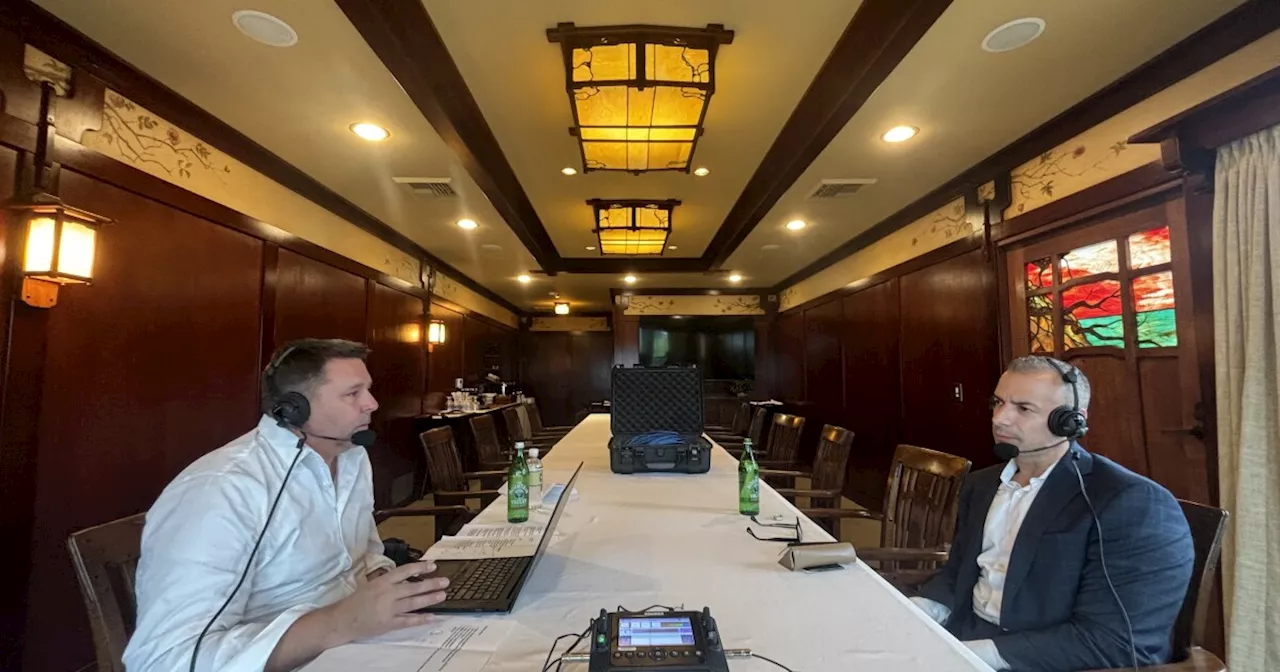A recent discussion on KPBS Roundtable featured A Martínez, co-host of NPR’s Morning Edition and the Up First podcast. He shared insights into his journey in public media, the challenges faced by immigration lawyers using habeas corpus petitions, and the financial implications of Proposition 36 in San Diego County.
Journey Through Public Media
Listeners of public radio often find comfort in familiar voices, and A Martínez has become one of those trusted figures since joining NPR in 2021. During a KPBS event in La Jolla, he reflected on his path from sports journalism to public media. Previously a sports radio host, he was hired at KPCC in 2012 as part of a push to diversify radio voices. He acknowledged his initial ignorance about public radio but described how the experience broadened his horizons.
Martínez grew up in Koreatown, Los Angeles, a melting pot of cultures. He noted how this diverse environment shaped his understanding of community and connection. “Koreatown was a great place to live if you wanted to be exposed to different people and viewpoints,” he said. His passion for sports extended beyond the game itself; he appreciated how it brought families together and reflected broader societal narratives.
In his current role, Martínez emphasized a shift in how Morning Edition conducts interviews. Instead of focusing solely on news context, the show now allows for a more immediate connection with guests. This change aims to enhance listener engagement and streamline the storytelling process.
Legal Strategies for Immigration Detention
In the second segment, Gustavo Solis, KPBS’s investigative border reporter, discussed the increasing use of habeas corpus petitions by immigration lawyers. As immigration detention facilities become overcrowded, attorneys are resorting to this legal strategy to challenge the constitutionality of their clients’ detention.
Habeas corpus petitions have gained traction, with reports indicating that they are being filed at historic rates. Solis described these petitions as vital tools in a national debate over mass deportations. “They challenge the government’s ability to detain people unconstitutionally,” Solis explained. The petitions are primarily filed in federal courts, distinct from the immigration court system, which is governed by the executive branch and subject to different rules.
Retired immigration judge Dana Marks expressed concern over the current state of the immigration system, highlighting how recent policies have distorted the rule of law. She lamented the impact of the administration’s approach on the reputation and functionality of immigration courts.
San Diego County Faces Budget Strains
The final segment of the discussion focused on the financial impact of Proposition 36, passed by California voters in 2024. This measure increased penalties for certain theft and drug crimes, leading to significant budgetary challenges for San Diego County. As of now, the county is grappling with costs exceeding $32 million related to the influx of individuals into the jail system due to these new regulations.
Proposition 36 was designed to address repeat offenses and provide treatment options for individuals with substance abuse issues. However, its implementation has led to an increase in jail populations, with over 540 individuals currently detained on related charges. According to the sheriff’s office, around 40% of these defendants are released within the first five days, but many spend nearly a month in jail.
County officials are absorbing the financial impact across various departments, from increased jail costs to heightened workloads for public defenders. The probation department alone anticipates a budget impact of $2.6 million due to the added responsibilities stemming from Proposition 36.
Despite the challenges, some advocates argue that the long-term benefits of treatment and rehabilitation may ultimately reduce costs. However, skepticism remains about whether the measure will deliver on its promises, particularly regarding its impact on communities of color.
As San Diego County navigates these complex issues, the discussions surrounding public media, immigration law, and criminal justice reform continue to evolve. The insights shared by Martínez and Solis underscore the interconnectedness of these topics in today’s socio-political landscape.
This episode of KPBS Roundtable highlights the ongoing dialogue about the role of public media in shaping public understanding of critical issues, and the ways in which legal frameworks are being utilized to advocate for vulnerable populations.
